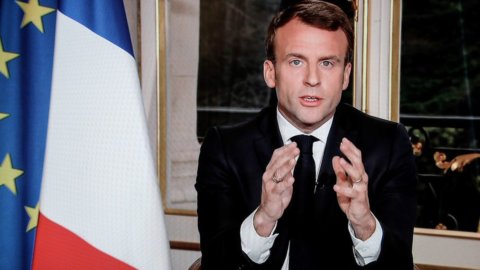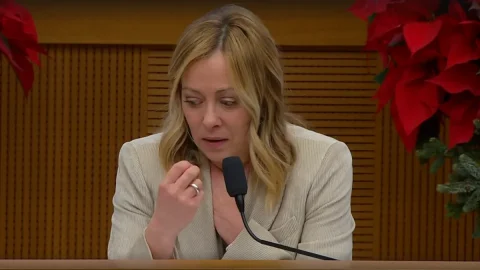in 2023 Italy will officially enter a recession. The supports it International Monetary Fund in its update to World economic outlook. However, our country will be in good company: not only because it is also there Germany will close 2023 with a minus sign, but also because between the end of 2022 and 2023, countries that represent about a third of the global economy will record a decline in GDP for two consecutive quarters, entering what is called a technical recession.
Italy in recession in 2023: the forecasts of the IMF
Il 2023 will end forItaly in recession with a drop in Gross domestic product by 0,2 percent. Last July, the IMF had estimated an increase of 0,7%. The current year, on the other hand, will close with a growth of 3,2%, 0,2% more than expected 3 months ago. An increase mainly due to the recovery of tourism and industrial production.
Moving on to the other data, the debt in 2022 and 2023 it will remain around 147%, while the deficit it will be 5,4% this year and 3,9% in 2023.
Global growth at 3,2%
In 2022 global growth it will settle at 3,2%, while in 2023 it will drop (-0,2%) to 2,7%. “The 2023 slowdown will be far-reaching”, writes the IMF, explaining that “Countries that account for a third of the global economy are destined to contract this year or next. The three major economies – the US, China and the Eurozone – will continue to stagnate”. According to the Washington institution, in fact, "the worst is yet to come and for many people 2023 will be a year of recession".
Speaking of individuals, in the Use, the monetary policy carried out by the Federal Reserve will reduce growth in 2023 to +1% (+1,6% in 2022). In China next year it will close with +4,4%, while this year growth will stop at 3,2%, the lowest in more than 40 years, except for 2020. It is not only the the war, but also the crisis in the real estate sector and the repeated lockdowns carried out in the name of the Zero Covid policy. However, the growth ofIndia: +6,8% (-0,6%) in 2022, +6,1% expected for 2023.
What about the two warring nations? For the Russia 2022 will end with a 3,4% drop in GDP, followed by a -2,3% in 2023. The situation of theUkraine, whose Gross Domestic Product will drop by 2022% in 35.
Estimates for Europe: Germany too goes into recession
It will be much worse in Europe, where the crisis triggered by the war in Ukraine and by high energy prices will cause a slowdown in growth, which will stop at +0,5% in 2023, while in 2022 it will settle at 3,1%.
To do worse than Italy will be the former locomotive of Europe, the Germany, which in 2023 will record a 0,3% drop in GDP, after the +1,5% estimated for 2022. They are saved, but slow down France and Spain, whose gross domestic product will grow by 2023% and 0,7% respectively in 1,2.
Outside the EU, even the UK will slow down its run: +3,6% in 2022, +0,3% in 2023.
The surge in inflation and the energy shock
"The high inflation in 2021 and 2022 has surprised many analysts, including the IMF staff”, reads the report, in which the IMF recommends that central banks continue on the path of monetary tightening to keep prices under control and governments to avoid measures that go in the opposite direction. Reading this last clarification, it is difficult not to think of the iusual criticisms that the IMF has leveled at the United Kingdom after the announcement of the maxi cut in the taxes of the wealthiest classes, later cancelled.
Speaking in percentage terms: according to Washington l'inflation will peak in late 2022 at 9,5% globally annually, before slowing to 4,1% in 2024.
With regard to the energy crisis, the IMF warns the Old Continent: “The energy shock it is not transient. The geopolitical realignment of energy supplies in the wake of the war in Ukraine is large and permanent. The winter of 2022 will be a challenge, but that of 2023 will probably be worse”, reads the report, in which the IMF underlines that “Price controls, untargeted subsidies or export bans are fiscally burdensome and lead to excessive demand, insufficient supply, misallocation and rationing. They rarely work. Fiscal policy should instead aim to protect the most vulnerable through targeted and temporary transfers”.





